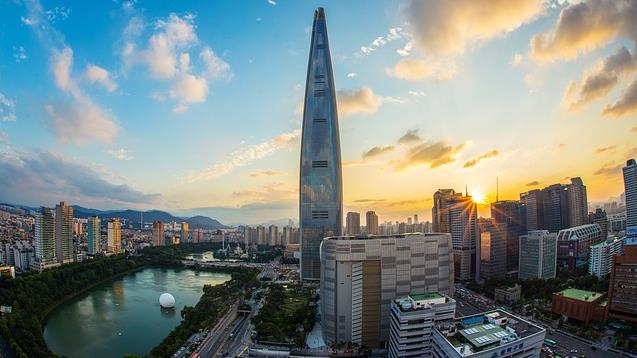

South Korea's construction market is expected to contract by 4.5% in 2024 and by 0.7% in 2025, owing to a sustained, sharp decline in the number of building permits issued, according to a report by GlobalData.
The expected decline in construction activity is likely to lead to South Korean contractors seeking orders from international markets. Seoul has actively targeted the Saudi market for new orders, specifically on the kingdom's gigaprojects such as Neom.
In 2022, Seoul formed a task force to help South Korean contractors win work on infrastructure projects in Saudi Arabia. The group, known as One Team Korea, is made up of the Land, Infrastructure & Transport Ministry; Overseas Infrastructure City Development Corporation; the Korea Trade-Investment Promotion Agency; and the Overseas Construction Association.
In December 2022, Saudi Arabia’s Public Investment Fund (PIF) secured its first financing arrangement backed by South Korean export credit agency the Korea Trade Insurance Corporation (K-Sure) as part of a strategic alliance to boost the export of South Korean goods and services into the PIF's various projects and subsidiaries. The $3bn term loan can increase to $5bn and has been provided by a consortium of nine leading international lenders. It is guaranteed by K-Sure.
Seoul’s efforts are producing results. In 2023, South Korean main contractors secured contracts totalling $7.2bn in Saudi Arabia. The total was the best on record since 2013, when there was $14.2bn of contract awards. So far in 2024, there has been $1.4bn of contract awards.
Domestic outlook
As the value of contracts secured in Saudi Arabia rises, the outlook for South Korea’s domestic market remains challenging. According to the Korean Statistical Information Service, the total number of construction permits issued fell by 25.3% in 2023, while the total gross floor area for which construction permits were issued declined by 25.6%. Residential building permits alone declined by 30.6% in 2023, following an annual decline of 14.5% in 2022.
Over the remainder of the forecast period, between 2026 and 2028, the construction industry is expected to record an average annual growth rate of 2.7%, supported by investment in the manufacturing industry, transport and renewable energy infrastructure, and the government’s easing of housing redevelopment and reconstruction regulations.
The industry’s growth during that period will also be supported by the government’s plan to invest KRW9.2tn ($7bn) by 2025 in wind, solar and hydrogen infrastructure and construct 12GW of offshore wind capacity by 2030.
In addition, the government plans to invest KRW134tn ($102bn) by 2028 in developing the GTX project, a new suburban rail network in the Greater Seoul area.
Further support for growth will be generated by Samsung Electronics and SK Hynix’s plan to develop the world’s largest chipmaking cluster, with the companies planning to invest a combined KRW627.2tn ($477.5bn) by 2047.
You might also like...

Fujairah oil facility catches fire from drone debris
03 March 2026

QatarEnergy stops downstream production operations
03 March 2026

Read the March 2026 MEED Business Review
03 March 2026

Firms prepare Port of Duqm consultancy bids
03 March 2026
A MEED Subscription...
Subscribe or upgrade your current MEED.com package to support your strategic planning with the MENA region’s best source of business information. Proceed to our online shop below to find out more about the features in each package.
Take advantage of our introductory offers below for new subscribers and purchase your access today! If you are an existing client, please reach out to your account manager.













